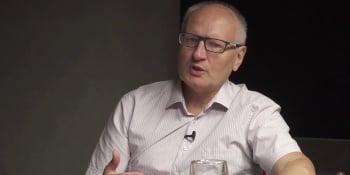Published: 05.12.2023

- Spanish authorities have banned public prayer, including the recitation of the rosary for the homeland. The decision is in response to mass protests by the population expressing opposition to the amnesty of Catalan separatists.
- States, by introducing legislation criminalising silent prayer, are violating the right to freedom of thought and conscience, which is a fundamental human right.
- Until now, there has been a widespread belief that the internal sphere of freedom of conscience and religion is absolute and remains unfettered.
- The legal system cannot under any circumstances restrict the freedom to hold, change or not to hold one's own worldview in religious matters.
Praying the rosary banned in Spain
A few weeks ago, Spain was gripped by protests against the government due to its deal with Catalan separatists. The opposition of Spaniards was sparked by the plans of the Pedro Sanchez government, which took office thanks to the support of Catalan separatists. After winning a vote of confidence, the head of Catalonia's autonomous government, Carles Puigdemont, who heads the separatist Together for Catalonia (Junts) party, called on Sanchez to immediately announce amnesty legislation for the secessionists. He threatened that if the new regulation was delayed, the party would vote for the resignation of the Sanchez government. As part of their peaceful resistance, a number of Catholics decided to organise a prayer demonstration in front of one of Madrid's churches. Soon more people joined the prayers. The event, which was broadcast worldwide, attracted international attention. This, in turn, aroused the concern of the Spanish authorities, who sent the police against the Catholics praying the rosary. Threats and harassment by the police did not extinguish the spirit of resistance among Catholics and the incidental gathering turned into regular prayer meetings. The position of the authorities remained firm to the extent that a ban on public prayer was imposed. Despite the ban, Catholics continue to meet for prayer. Last week, the first fines were issued by the police. The reason given was that the organisers had "missed the deadline" to apply for a prayer permit.
Participants in prayer meetings, even before the ban, faced police brutality: they were repeatedly detained, beaten with batons by the police and threatened with fines. During the trial, the Catholics will be represented by the organisation Christian Lawyers. The association stressed that "the fundamental rights to religious freedom, to publicly profess one's faith, as well as the right of assembly have been violated".
Removal of religious symbols from public spaces, ban on prayer... persecution of Christians in Spain escalates
This is not the first decision by the Spanish government to hit Catholics. On the third of February 2023, on the initiative of Pedro Sanchez's party, the Congress of Deputies passed an amendment to the Penal Code introducing criminal liability for praying outside abortion clinics. According to the amendment, anyone who prays outside an abortion clinic will be liable to a prison sentence of three to twelve months. This punishment will be amendable to community service of between 31 and 80 days. Importantly, the prosecution of 'perpetrators of this type of harassment' does not require a complaint from the victim himself. The adopted amendments also provide for the possibility of banning members of pro-life organisations from certain public places for six months to three years. Catholic organisations stress that the consequence of the new legislation will be that Catholics will be tried for prayer on a par with those who use physical or psychological violence in their relationships.
In 2017, liberal political groups tabled a motion to remove religious symbols from the Senate and called for a ban on invoking God when taking the oath of office. In the end, these demands were not granted. The justification stated that everyone has the right to take the oath in accordance with his or her own religious convictions, and that the attempt to ban this would undermine freedom of conscience and religion, which is one of the fundamental human rights.
In April 2021, in Spanish provinces, local authorities launched grassroots initiatives to remove crosses from public spaces. An example is the case of the mayor of the municipality of El Casar in the province of Cáceres. In his opinion, the stone cross placed in one of the main squares of this town "promotes the views of supporters of the Francoist regime that ruled in Spain in the years 1939-75."
It is worth recalling that a similar situation occurred in 2019 in Poland, when it was proposed to remove religious symbols from public space, in particular from schools. Ordo Iuris lawyers then prepared a legal opinion on this subject. In turn, in 2021, the Institute's intervention prevented the removal of the cross from a school in Wrocław.
Silent prayer is also banned in Australia, Great Britain and Northern Ireland
In recent years, several countries have considered adopting the so-called buffer zones around abortion facilities. Australia was the first to introduce them. In Northern Ireland, the ban, depending on the location, applies within a radius of 100 to 250 meters from the center where abortions are performed. Apart from prayers, even conversations about abortion are prohibited in the zone, as well as handing out literature or materials with a pro-life message. Representatives of pro-life organizations emphasize that "the criminalization of citizens' peaceful activities not because of antisocial behavior, but because of the desire to exercise the right to express their religious and political views, constitutes a serious threat to the civil rights of every member of our society."
In March 2023, an amendment to the Public Spaces Protection Order was adopted in Great Britain. According to the new regulations, you cannot pray within a radius of 150 meters from such facilities. Any suspicious person may be fined or sued. Catholic organizations and the Episcopal Conference of England and Wales claim that the new law "discriminates against believers, also harming freedom of speech." Moreover, according to activists, "the new law criminalizes activities that should never be punished, such as prayer, thought, peaceful presence, voluntary communication and practical support, if they are considered obstacles to access to abortion." Ordo Iuris lawyers have prepared a legal analysis on this subject.
Last year, the case of Isabel Vaughan-Spruce, who was arrested for silently praying outside an abortion clinic in Birmingham, became famous. The woman stood alone outside the clinic, silent and focused. She was not holding banners or posters. However, the police found her behavior "suspicious" and arrested her for "incorrect thinking." The proceedings ended in September 2023 with an apology from the police. Earlier, however, the court of first instance commented on her case, rejecting the hypothesis that Vaughan-Spruce could have broken the law.
“Thoughtcrime” becomes a fact
Freedom of conscience and religion is considered a fundamental human right in democratic societies. This is confirmed by documents and acts of international law, both created within the UN system and in both systems of European law. This right is also included in the Polish Constitution (Article 53(1)). All its restrictions must be introduced by statute and only in special circumstances (Article 53(5) in connection with Article 31(3) of the Constitution). However, they do not concern religious freedom in the internal sphere, which is absolute. Also in this respect, international legal regulations present a uniform position.
The criminalization of "mental prayer" introduced into the legal systems of individual countries violates this immutable principle. In this context, the question arises how far governments will go in the framework of "political correctness" glorifying neutrality - also in the religious aspect. Since it is no longer allowed to pray in silence, soon it will no longer be possible to organize, for example, a Corpus Christi procession, which is an external presentation of specific religious views. In this regard, the first voices are already appearing in the Polish political space, such as the comment of the mayor of Poznań from June 2023, in which he stated that this "flagrant manifestation of ludic religiosity and an event from the category of performing arts " will soon disappear from the streets of Polish cities.
Dr. Kinga Szymańska – analyst at the Ordo Iuris Research and Analysis Center

26.02.2025
• The Polish Supreme Court has refused to hear a cassation appeal filed by IKEA in the case of Janusz Komenda, an employee fired for criticizing the demands of the LGBT movement.

Will Poland’s Law and Justice (PiS) go down the same path as Western Europe’s Center Right?

• On December 1-3, in the plenary hall of the Spanish Senate, members of the Political Network for Values from 45 countries, from the four continents bordering the Atlantic, met at the “VI Transatlantic Summit.” Among them were representatives of the Ordo Iuris Institute, which co-organized thi

30.08.2024
Polish journalist and essayist Paweł Lisicki, editor-in-chief of the weekly Do Rzeczy, describes the current disturbing evolution of Western liberalism and explains the reasons why classical liberalism, based on individual freedom and limited state interference in the personal lives of citizens, is no longer working.